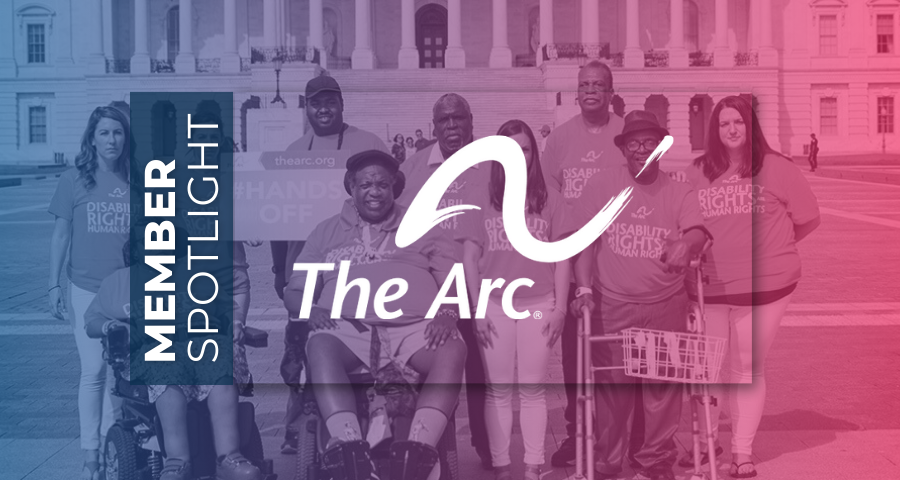What is your organization’s issue focus?
The Arc is a nationwide network advocating for and serving people with intellectual and developmental disabilities (IDD), such as Down syndrome, autism, and cerebral palsy. Founded in 1950 by parents who wanted a better life for their children with IDD, The Arc’s nearly 600 chapters across the country empower people with IDD to live self-determined lives with inclusion, dignity, and opportunity.
What is something your organization is currently prioritizing? Can you tell our readers a little about the goals of the campaign/project?
Our major federal priorities this year have been pushing for greater investment in Medicaid, Social Security, paid leave, and care infrastructure.
Last month, we launched our first grassroots campaign to advocate for greater investment in child care for children with disabilities. We started a petition people can send to Congress; developed social media posts and graphics to educate our audience on this issue; and uplifted stories from families nationwide who have experienced this crisis.
Our policy staff also joined several disability and non-disability coalitions to amplify messaging and outreach. We were interviewed by the Government Accountability Office as they began to write a report on this issue. Our communications team has also worked to elevate this issue, sharing information with top-tier national journalists.
Do you have an “Advocacy Tip” to share or “Lesson Learned” while organizing this or other campaigns? Do you have any general words of wisdom that you’d like to share with other staff engaged in advocacy? Speak peer to peer in this response.
Put stories and storytellers first.
Stories are the most powerful advocacy tool we have. They humanize data and issues so more people can relate to issues. They motivate people to act. We put storytelling at the heart of all our efforts.
We also recognize that storytelling is based on trust and partnership with individual storytellers. They may have many reasons to share stories, and respecting their rights, goals, and privacy is paramount. Too often, grassroots advocates feel like their stories may not be important enough to share. To help support our individual advocates and empower them to share stories and grow their leadership, we created a plain language toolkit. This free toolkit shares how to create a story, real life examples, and rights every storyteller has.
Many of our member organizations work with both our Bolder Advocacy initiative and our Justice program. How has either or both most helped you? How have you worked with either or both?
Our chapters are 501(c)(3) nonprofits, and supporting their advocacy is one of our biggest jobs. Bolder Advocacy has been crucial in doing this! We use it often to share best practices around lobbying rules and how to build and evaluate effective advocacy programs.
Voting resources are also critical – especially in an election year like this. We conducted a chapter survey last year about what our network needed to best support voter education and candidate education – and we heard a bit of everything! Thanks to Bolder Advocacy, we have shared information about allowable activities for nonprofits, voter education ideas, and more.
Who inspires you? This can be an inspiration to you personally or an organizational inspiration. If you personally, please indicate whether we can attribute it to you with name and title or leave unattributed?
It’s hard to speak about the disability rights movement without honoring Judy Heumann, a mother of the disability rights movement who dedicated her life to shattering barriers and stereotypes and fighting for the civil rights of people with disabilities globally.
We would also be remiss if we didn’t mention visionary mothers like Ann Greenberg and Elizabeth Boggs who founded The Arc generations ago. Greenberg founded AHRC New York City after placing a classified ad to connect with others raising children with disabilities. Boggs, parent of a son with a disability, helped found The Arc, served as our first national woman president, and counseled President John F. Kennedy on intellectual disabilities. These women changed the face of our country by demanding that children with disabilities deserve equal opportunities to thrive.

